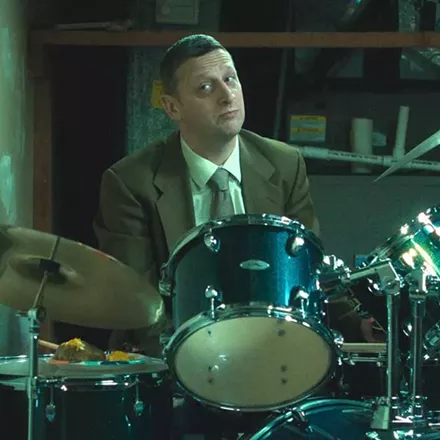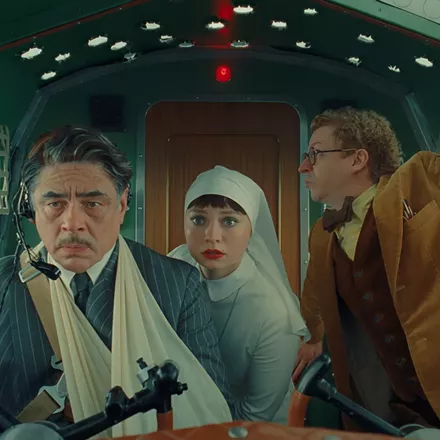Reflections on 30 years of film criticism
My principles for writing about movies
By Scott Renshaw @scottrenshawIt's kind of staggering to realize that another decade has passed since I wrote about my 20th anniversary as a film critic, and how that anniversary is linked to the release of Groundhog Day on Feb. 12, 1993. The more those years blend into one another, the more I'm struck by the cosmic appropriateness of that particular film being a marker of such a significant life change.
I don't want to rehash too much of what I wrote about in 2013; suffice it to say that it all started with a review of Groundhog Day that I sent to friends on an early email listserv in February 1993, and that after a few more similar reviews, one of those friends eventually pointed me towards a USENET forum where other people posted movie reviews. Starting that summer, and for the next few years, the rec.arts.movies forums became a training ground for me and for a generation of other folks who became professional pop-culture writers.
A hell of a lot has changed over the subsequent three decades, both in the landscape of film distribution and in the business of writing about movies. Streaming services and a pandemic have led to speculation that the importance of theatrical exhibition will never be the same again. Meanwhile, many traditional media outlets, including daily newspapers, increasingly saw in-house full-time film critics as a financial luxury, and axed those positions. Like so many occupations in a time of rapid technological change, the job of covering and writing about movies has had to evolve.
It's also fair to say that my own individual approach to thinking and writing about movies has evolved over the past 30 years, in ways that I hope made me better at it. In fall of 2022, I was invited to speak to a journalism class at the University of Utah about the work of film criticism, which forced me to put some basic principles into concise language. This feels like a fitting time and place to share a few of those principles, refined and revised over the course of 30 years, close to 10,000 movies and hundreds of thousands of words written.
Film criticism isn't an opinion; it's an essay. It's been all-too-easy in the unregulated landscape of the online era to behave as though all perspectives have equal merit—and to suggest that an argued thesis is the same as "I liked it." While good film criticism inevitably contains opinion—or, perhaps more accurately, subjective perception—it should be opinion grounded in evidence and argument. Back in 1993, I started writing every review as a five-paragraph essay, as a way to remind myself that I needed a thesis, supporting information, and a conclusion. The structure may have changed since then, but the principle remains.
Film criticism isn't a list of things you noticed; it's a piece of writing. Though related to the previous concept, it's not entirely the same. For years, I'd read "reviews" of movies in the Hollywood trade papers that felt like someone was referring to a checklist of items: cinematography was okay, costumes were lovely, performances were wonderful, etc. It was tedious reading. My goal is actually to have people want to read what I've written, which means making the piece cohesive, insightful and maybe even (God willing) entertaining. While I take notes during movies, not all of those notes will end up being part of what I write, because ultimately it's more important to put out a good piece of writing than it is to make sure everyone knows I enjoyed the production design.
Film criticism isn't about being "right;" it's about starting a conversation. This might be the hardest thing to get people to understand in a time when every point of contention can turn into verbal warfare. While I have enough of an ego after 30 years of writing about movies to believe I have something worth saying, I also have enough humility to realize that I don't have the only thing worth saying, and that my perspectives and interpretation are tied to my background, my values, and the way I see the world. My particular reading of a creative work is, I hope, a way to invite people into the act of thinking about art, rather than merely absorbing it. That purpose isn't served by shutting down any possible alternative reading, even ones I might strongly disagree with.
If I'm still doing this job another 10 years from now, I hope I'll have learned and evolved more. If Groundhog Day taught us anything, it's that it's no fun getting caught in a loop of sameness.
More by Scott Renshaw
-
Writer of the Lost Oligarch
The Phoenician Scheme gets both silly and serious about what makes rich dickheads tick.
- Jun 4, 2025
-
Film Reviews: New Releases for May 30
Karate Kid Legends, Bring Her Back, Jane Austen Wrecked My Life, Bad Shabbos, Tornado
- May 29, 2025
-
JANE AUSTEN WRECKED MY LIFE, BRING HER BACK, June 2025 Special Screenings
Two new releases, plus SLFS Summer Showdown, Wild & Scenic Festival and more.
- May 28, 2025
- More »
Latest in Film Reviews
Readers also liked…
-
Sundance 2025 wrap-up plus February special screenings
Uncertainty about the future location shifts focus away from the movies
- Feb 5, 2025










